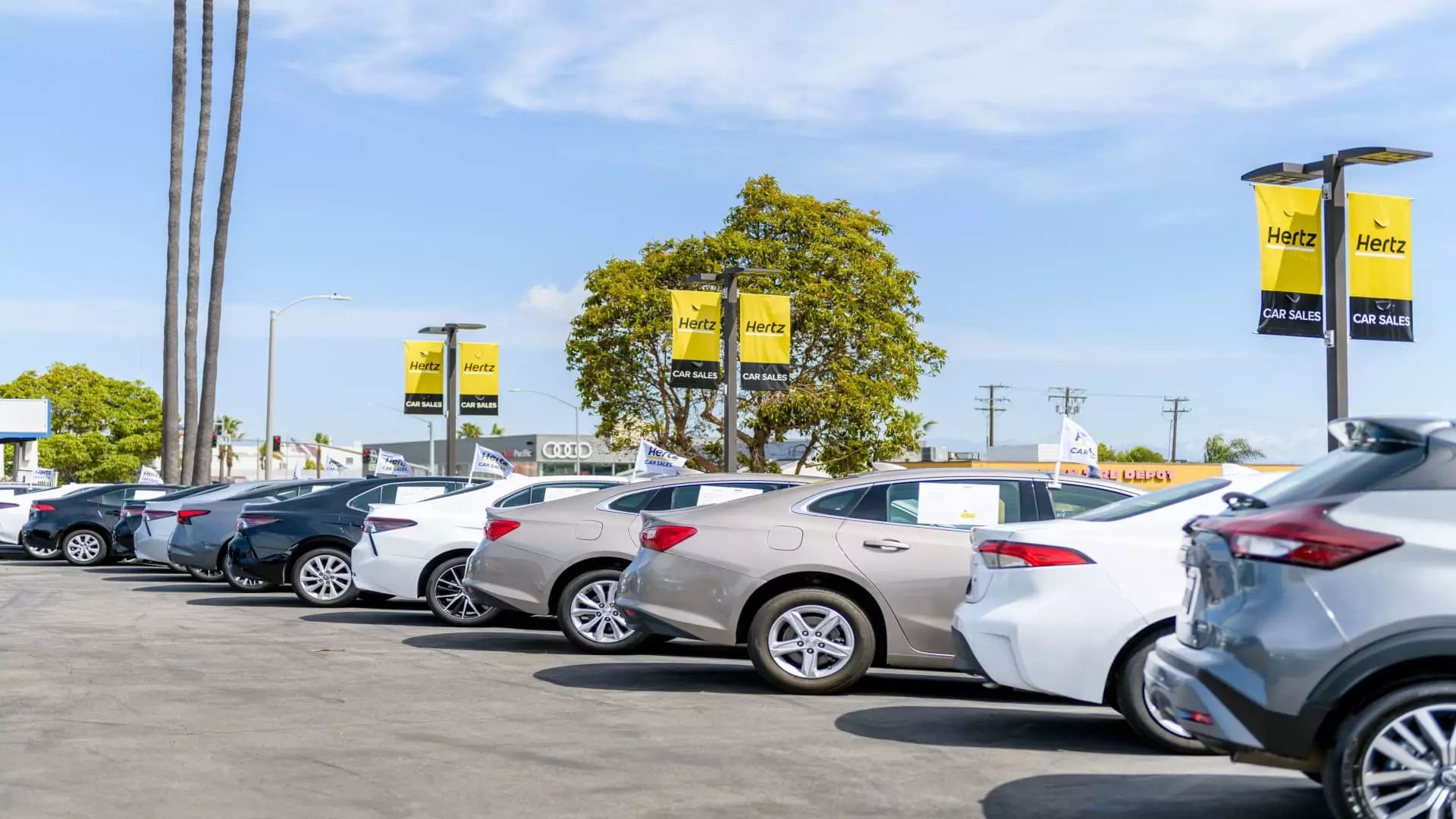Hertz’s recent move to sell preowned vehicles via Amazon Autos signifies a pivotal moment in the automotive retail landscape. While this partnership appears to be a smart strategy for expanding their reach, it also exposes systemic vulnerabilities that could undermine traditional dealership models. The shift from physical, in-person transactions to an entirely digital buying experience reflects a broader trend that could either revolutionize car sales or diminish the value of personalized service that many consumers still crave.
At first glance, this move seems to align with a progressive vision of retail—making used cars more accessible, transparent, and convenient. Charging headlong into an online marketplace, Hertz aims to meet customers “where they are,” as Jeff Adams emphasized. Yet, by relinquishing control over the nuanced aspects of the buying process—such as assessing vehicle condition in person or negotiating face-to-face—Hertz risks alienating consumers who prefer trust and intimacy over digital convenience. The promise of e-signatures, online browsing, and doorstep pickup sounds revolutionary, but it could also dilute the critical human element that often influences purchasing decisions in the automotive industry.
The Power Dynamics of Market Disruption
Partnering with Amazon Autos signals Hertz’s recognition that the retail automobile sector must adapt or face obsolescence amidst the rapid ascendancy of e-commerce giants. Amazon’s push into autos, coupled with Hertz’s willingness to be a key player, demonstrates an understanding that survival depends on harnessing the formidable reach and technological prowess of digital platforms. This symbiosis could give Hertz an advantage, but it also raises serious questions about the sanctity of the car-buying experience.
The partnership, while promising in its scalability, might accelerate the commodification of vehicles, stripping away the individual stories, histories, and local nuances that often come with traditional dealership sales. Cars are more than mere commodities; they carry emotional and social significance, which could be sidelined in the rush for mass, online transactions. Moreover, the digital-first approach favors consumers with reliable internet access and technological proficiency, potentially marginalizing demographic groups who equally deserve accessible and trustworthy purchasing options.
Implications for Consumer Trust and Market Integrity
Integrating Hertz’s inventory into Amazon’s sprawling ecosystem could deepen consumer trust in an era riddled with skepticism about digital transactions. Yet, this same model risks fostering a polarized market where quick digital deals overshadow due diligence. How can buyers be assured that used vehicles offered online meet rigorous standards? The inherent opacity in used car histories, despite certification processes, complicates online sales, which lack the tactile inspection of physical dealerships.
Furthermore, the rapid expansion and digitalisation could undermine local car dealerships—those that have served communities for decades. While critics argue this shift democratizes access to vehicles, it also poses a threat to small businesses and territorial dealerships that rely on personalized service and community relationships. The market’s concentration into tech-enabled giants risks reducing diversity, competition, and local economic vitality.
A Reckoning with Market Power and Regulatory Oversight
This partnership epitomizes the broader challenge: how do regulators and consumers ensure fairness in a landscape increasingly dominated by tech conglomerates entering traditionally regulated space? The union of Hertz—a company emerging from bankruptcy with a controversial history—and Amazon, which has a mixed record on data privacy and market dominance, intensifies scrutiny into whether this model benefits consumers or consolidates monopolistic power.
Moreover, as Hertz promotes its “Back-to-Basics” strategy focusing on fleet management and efficiency, its foray into online used car sales suggests a recognition that future profitability hinges on digital transformation, perhaps at the expense of certain consumer protections. Will future regulations be robust enough to prevent abuses? Or will this alliance accelerate market consolidation, making it harder for consumers to access diverse options or hold companies accountable?
Hertz’s strategic pivot to online vehicle sales via Amazon Autos is undeniably ambitious. It reflects a necessary evolution in an industry increasingly driven by digital convenience and global reach, yet presents significant risks. The move could democratize car ownership—if implemented with transparency and consumer-centric policies— or it could further entrench corporate power and commodify an industry rooted in community connection and trust. Navigating this path requires careful oversight, fairness, and a genuine commitment to preserving the human touch in an increasingly automated world.


Leave a Reply